Topics:
Never Miss a Beat - Get Updates Direct to Your Inbox
FILTER:
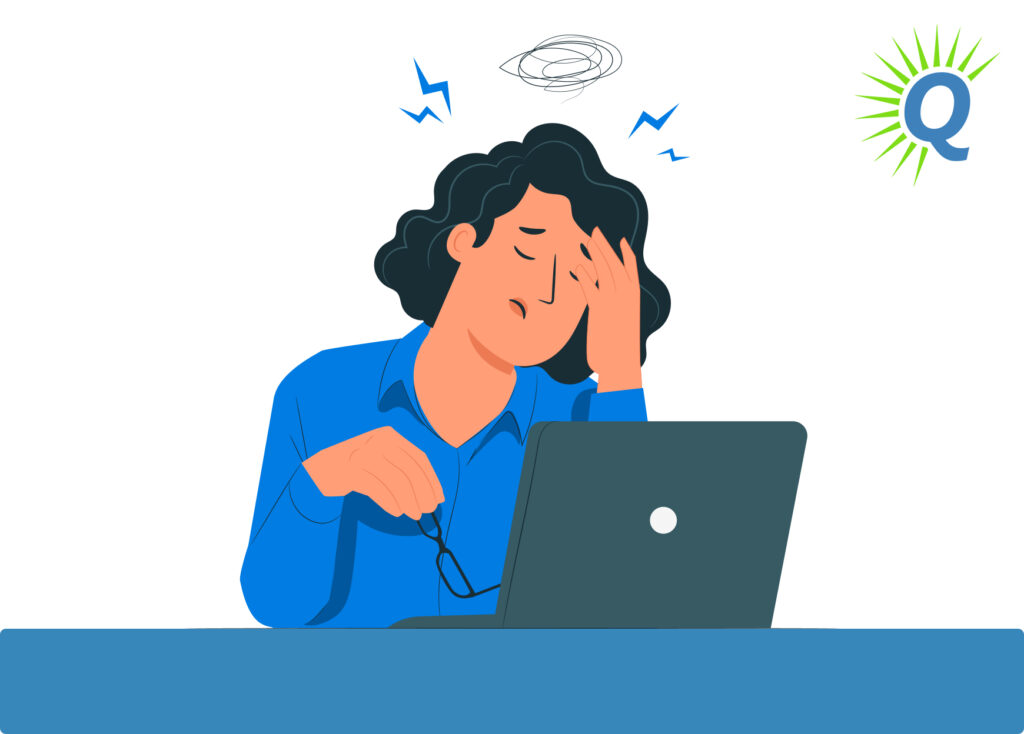

Avoid These Six Common Mistakes When Selling Your SaaS Business
By Quiet Light
Selling your SaaS business can be a daunting task, even for seasoned business owners. Whether you’re looking to retire or are ready to explore new opportunities, exiting your business involves careful planning and preparation. However, even experienced entrepreneurs can make common mistakes when selling a SaaS business that can cost time, money, and potentially the deal itself.
In this article, we explore six common mistakes and challenges you might face as a SaaS or MSP business owner, as well as how to navigate them on your way to a successful exit.
Related articles:
How to Get Your Business Ready to Sell
7 Things to Consider When Selling Your Online Business
4 Ways to Increase the Value of Your Business


Six mistakes to avoid when selling your SaaS business
Selling your business can be a complex process. But when you’re aware of common mistakes to avoid when selling your SaaS business, you can increase your chances of a successful sale and get the best price for your company.
Six of the most common mistakes to avoid include:
- Over or undervaluing your SaaS or MSP business
- Inadequate financial record keeping
- Neglecting the due diligence process
- Forgetting about customer retention during the sales process
- Ignoring tax and legal ramifications of selling your business
- Not having a solid team in place for the next owner
Common mistakes when selling: Not valuing your SaaS business accurately
Having an accurate valuation of your SaaS or MSP company is critical when you’re thinking about selling. If you overvalue your business, potential buyers won’t give your listing a second look. If you undervalue your SaaS business, you could end up selling your business at a price that doesn’t honor the work and dedication you’ve poured into it.
So how do ensure that the number you list your SaaS business for accurately reflects its value?
You have a few options when it comes to valuing your SaaS business. One way is to use an online valuation calculator. These calculators take metrics such as your business’s earnings, category, and age into consideration. Using a valuation calculator is fast and easy. However, the downside is that they don’t take into account other important variables. So while they can be a good place to start, their accuracy is limited.
Another option is working with a qualified business advisor to get a free valuation of your SaaS business. Unlike business valuation calculators, business brokers can provide a thorough examination of your business. This provides you with an accurate valuation as well as valuable insight into the strong and weak points of your business. This gained knowledge allows you to make improvements to your business and maximize its value before selling.
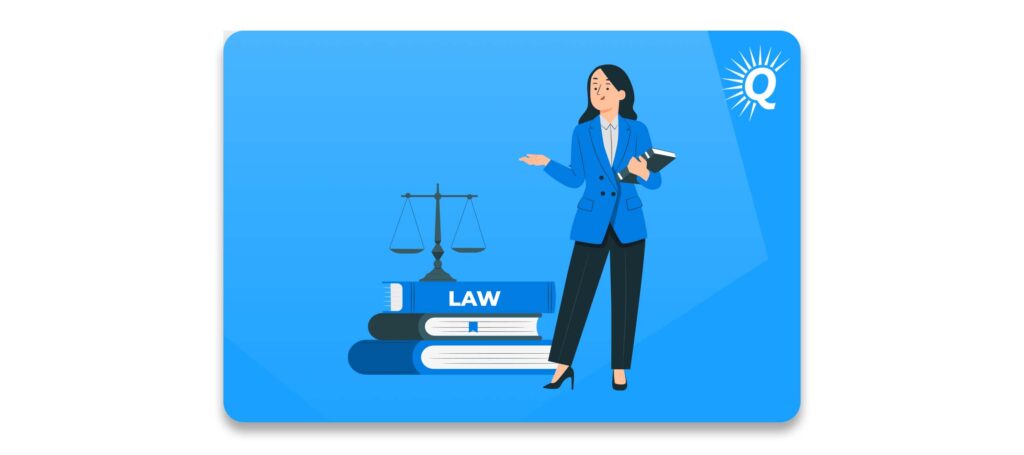

Common mistakes when selling: Not caring about your financials or record keeping system
When potential buyers look at your SaaS or MSP business, they want to see accurate financial records, sound projections, and a documentation system that will make transitioning the business a smooth process. Don’t make the mistake of a hobbled together record keeping system.
Your business documentation tells the story of your SaaS business. So if you don’t have solid records in place already, you need to create a system. This should cover important business documents such as:
- Bank statements
- Customer records
- Merchant statements
- Tax documents
- Media licenses
- Intellectual property.
Effective documentation reduces stress throughout the selling process. In turn, it also increases the value of your business.
Thinking of Selling Your Business?
Get a free, individually-tailored valuation and business-readiness assessment. Sell when you're ready. Not a minute before.
Common mistakes when selling: Getting sloppy in the due diligence period
After you accept an official offer from a buyer, there are a few more steps to complete before your exit. One of those steps is due diligence, which is when the buyer makes sure that your SaaS or MSP business is just as good as you say it is.
There are a few common mistakes when selling you should avoid in the due diligence period. If there’s a lack of transparency with the buyer, their trust in you as a seller will start to deteriorate. Problems can also arise if you fail to provide all of the documentation a buyer requests to review and verify.
To ensure that the due diligence period is smooth for everyone involved, take time to prepare accurate financial records. Document your processes, organize your business contracts, and address any outstanding legal issues.
The most important thing to remember during the due diligence process as a buyer is to be honest. Be ready to answer questions that buyers have about your SaaS business. If you’re able to have a frank conversation about any potential issues associated with your business, you can boost buyer confidence even when discussing potential risks.
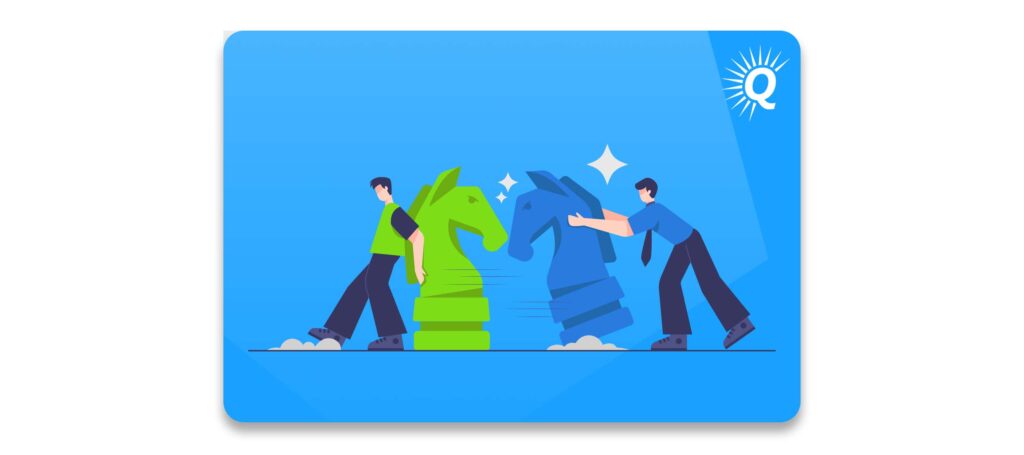

Common mistakes when selling: Losing sight of customer retention numbers during the sales process
When you’re in the process of selling your SaaS business, it can be easy to let day to day business operations fall to the side. But failing to focus on customer retention can hurt both the sale of your business and the overall health of your company.
Buyers want to purchase a SaaS business with loyal customers with a high customer lifetime value. If your customer experience tanks because you don’t put time into fixing tech glitches, the value of your SaaS business could dip while you’re trying to make a smooth and profitable exit.
If customers are canceling their subscriptions or memberships, that can damage your business reputation in the market. Negative reviews not only could influence potential customers, but potential buyers as well.
Focusing on your customer experience and business growth can make your business more attractive to potential buyers. And if the deal doesn’t go through, you aren’t left with a business that’s fallen apart while you’ve focused only on the sales process.
Common mistakes when selling: Not communicating about the transition
Communication is important in any business, but it becomes even more essential during the sales process of your SaaS business.
A lack of transparency and communication with your team can lead to a variety of issues. These could include misunderstandings, unmet expectations, and missed leadership opportunities with your staff. Leaving your team out of the loop can also create a negative external perception of your business. In turn, that could harm your professional reputation and the sale of your business. A prospective buyer wants to know that there are capable leaders in your organization. This helps ensure the business thrives long after the sale is completed.
It’s also essential to communicate clearly with customers and potential customers during the sales process, especially as you get closer to exiting the business. Encouraging open and frequent communication can help you continue to build a relationship with your customer, as well as help future owners understand their needs better.
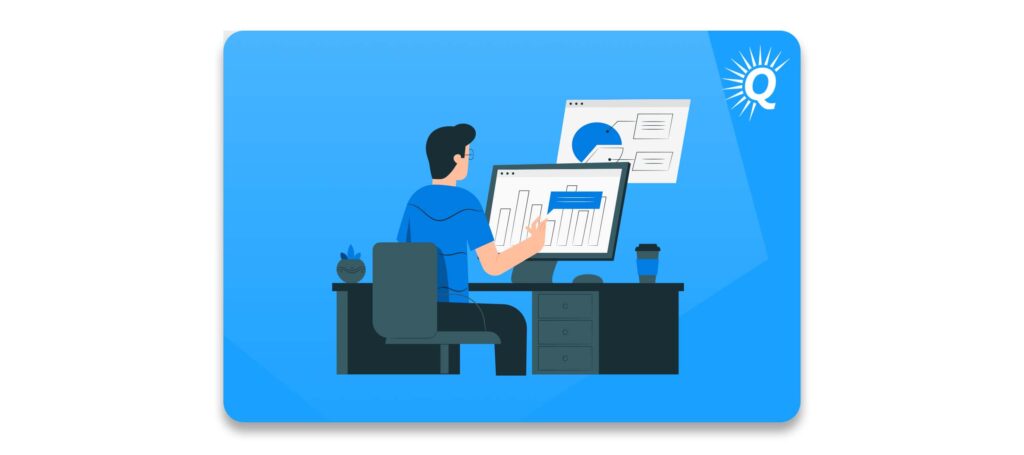

Common mistakes when selling: Forgetting about legal and tax considerations
Selling your SaaS business can have significant tax and legal implications. It’s important to have a team of professionals including lawyers, accountants, and business advisors, on your team to help you navigate these issues.
When you were just getting your SaaS business off the ground, your probably consulted with your accountant or an attorney to find answers to questions about sales tax and business documents. During the sales process, those same people can be incredibly valuable to you during a business transition season.
Although the legal forms for selling a SaaS business will vary from seller to seller, learning about the legal and tax ramifications of selling your business can help you navigate the sales process confidently as a seller.
Unique challenges you could face when selling your SaaS business—and how to overcome them
Selling your business can be complicated regardless of your business model. However, there are a number of unique challenges you could face as a SaaS business owner.
These challenges include:
- Educating potential buyers
- Hot market competition
- Security concerns
- Scalability
- Customer support
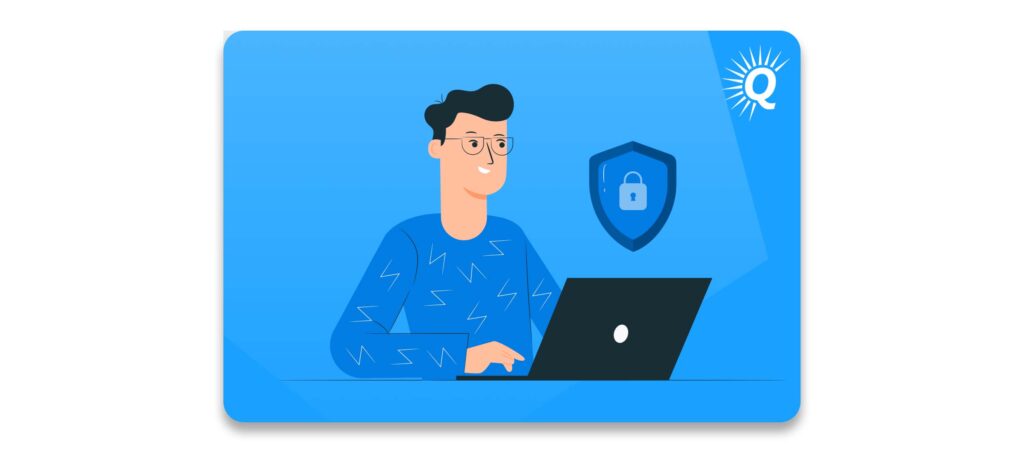

You might need to spend time educating potential buyers on the SaaS business model
When a potential buyer looks at a company with a tangible product, understanding day-to-day business operations usually isn’t a challenging process because products can be demonstrated physically.
This isn’t the case with a SaaS business model. As a business owner, you might find yourself educating potential buyers on the benefits of your software, exactly how it works, and how your business provides value to customers.
While it can be challenging to explain your software (or, if a potential buyer is just jumping into the SaaS world, what SaaS even stands for), this challenge can be an incredible opportunity for you as a seller. You have the chance to give an in-depth explanation of your business model and show exactly what problems you’re solving for your customers.
Buy a Profitable Online Business
Outsmart the startup game and check out our listings. You can request a summary on any business without any further obligation.
You can overcome this challenge a few different ways.The first is developing a clear and concise business pitch that clearly communicates what your SaaS business does and its potential for growth. Highlight key metrics like business revenue, customer acquisition costs, and churn rate.
Another solution to this challenge is to provide a demo or trial of your software to potential buyers. This allows them to experience firsthand how your product works and experience the benefits.
Finally, leverage social proof. Utilize customer testimonials, reviews, and endorsements to build trust and credibility with potential buyers. Reading about your customers’ experience can overcome skepticism and increase their interest in your SaaS business.


Your SaaS business has to stand out in a hot market
Globally, the SaaS market was valued at over $260 billion last year. It’s expected to grow at a compound annual rate of 13.7% in the next seven years—and that growth means that your competition could be fierce.
One way to overcome the challenge of a crowded market is to differentiate yourself from the competition. Define what makes your SaaS business unique and why your software is the best fit for potential buyers looking to expand into the SaaS market.
You might consider offering a unique or innovative pricing model that attracts customers and potential buyers simultaneously. Another strategy to overcome an oversaturated market is leveraging any technological advancements or innovations your SaaS business has made under your leadership. This can help showcase your ability to stay ahead of the curve and provide cutting-edge solutions to customers.
You might have to ensure potential buyers about security concerns
Because SaaS is cloud-based, potential buyers could have concerns around data security, compliance, and customer privacy. This means that during the sales process, you’ll have to provide assurance to potential buyers that data about their potential customers is safe and secure.
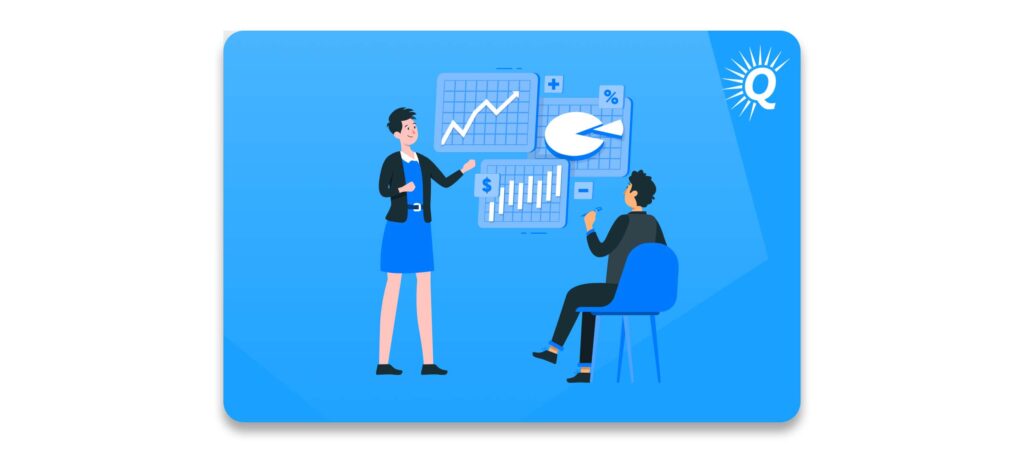

You can demonstrate to potential buyers that your SaaS business is committed to maintaining a secure and trustworthy platform in the following ways:
- Conduct regular security audits to identify vulnerabilities in your platform
- Use secure hosting and regularly monitor your hosting environment for security breaches
- Provide customers with a secure login by implementing multi-factor authentication to access your platform
- Regularly update software to make sure your SaaS business is protected against the latest security threats
By taking these steps, you’re ensuring your current customers and potential buyers alike that you’re committed to digital security.
Potential buyers could wonder if your tech can support growth
Potential buyers are interested in purchasing businesses that have growth potential. As a SaaS business, you’ll need to be able to show that your software can scale to meet the demands of a growing customer base.
Reassuring potential buyers that your SaaS business is scalable is crucial to gaining their trust and investment. Some ways you can demonstrate scalability include:
- Highlighting your business infrastructure, including servers and databases
- Showcasing your team’s ability to design and execute scalable business solutions
- Using metrics such as customer and revenue growth to show how your platform can scale
- Discussing your SaaS tech stack and how your programming languages, development tools, libraries, frameworks, and software are built to handle an increase in traffic and users without compromising the customer experience
Your customer retention could hinge on your customer support team
With a subscription-based model, top notch customer support is critical to retaining customers. Your SaaS business needs to provide prompt and effective support to ensure that customers are satisfied with their investment in your software.
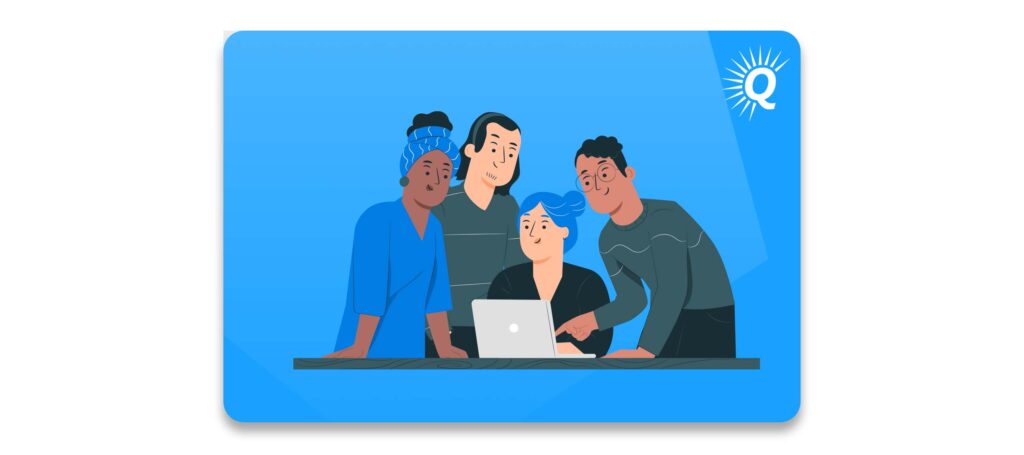

During the SaaS sales process, potential buyers might need assurance that customer service is a priority for your business. Here are a few ways to highlight the good work your customer service team is doing for your business:
- Provide potential buyers with customer service metrics such as satisfaction ratings and response times
- Share your customer service teams’ qualifications, training, and any certifications they’ve earned
- Share verifiable customer testimonials that speak to the quality of the customer service experience
- Offer a detailed outline of the customer service processes to demonstrate to potential buyers that you have a clear and organized system to address customer concerns
During the sales process, remember to be transparent about your customer service practices and metrics. This can help you build trust with potential buyers and demonstrate to them that customer service is a top priority for your business.
How business brokers can help you avoid common mistakes when selling and navigate SaaS specific challenges
If you’re reading this article, you’re thinking about the possibility of selling your SaaS business—and reading through a long list of common mistakes when selling and SaaS-specific challenges might be taking your stress levels up a notch or two.
You might be wondering about building out a team of professionals to help you navigate the selling decision. One team member you should consider hiring on during the sales process is an online business broker.
Online business brokers can help make the sales process go smoothly—and while there are no guarantees of a stress-free process, their expertise can help you avoid the major mistakes when selling we mentioned above. Some of the benefits of working with a business broker include:
- An accurate valuation of your SaaS business that helps you sell for maximum value
- Their knowledge of what potential buyers are looking for in a SaaS business
- Assurance of a secure business sale
- Access to a broker’s large pool of interested buyers
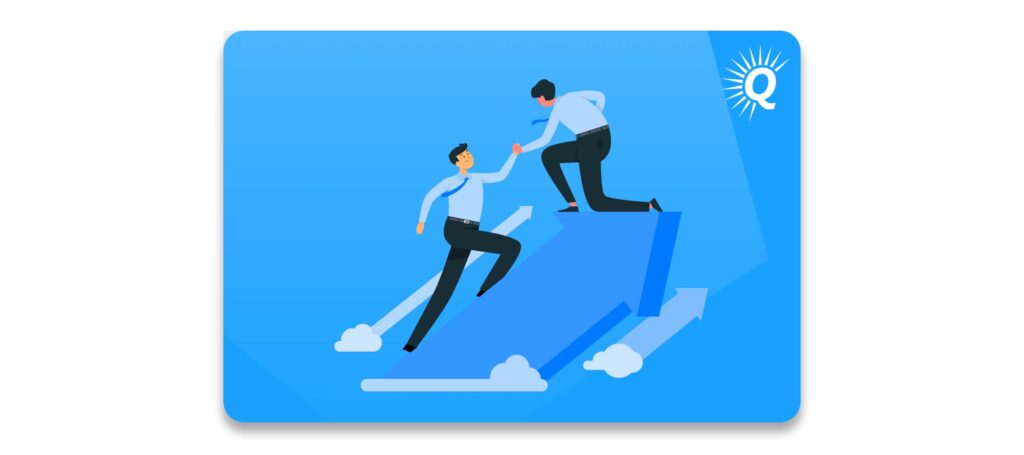

Business brokers can give you an accurate valuation of your SaaS business
Remember, one of the biggest mistakes when selling you can make during a SaaS sale is not having an accurate business valuation. Hiring a business broker can ensure that you have an asking price that accurately reflects the value of your business.
Often when a business broker values your business, they’ll use the SDE Multiple Method. SDE stands for seller’s discretionary earnings. This is the pre-interest and pretax profits your SaaS business makes before you take into account noncash expenses, one-time investments, your owner benefits, and any unrelated discretionary expenses or income. In other words, SDE is the total amount of money your business generates for you as a single owner.
The other component of the SDE Multiple Method is the multiple. If your SaaS business generates $125,000 in SDE and is valued at a 4x multiple, you have a company that is worth $500,000 ($125,000 x 4 = $500,000).
The business valuation process with Quiet Light also includes looking at your business in light of our Four Pillars of Value:
- Growth
- Risk
- Transferability
- Documentation
Having an accurate valuation matters for you as a seller because it impacts your asking price and makes sure you’re not leaving money on the table. Accurate valuations also honor the work and dedication that you’ve poured into your SaaS business.
Brokers know what buyers are looking for in a Saas business
It’s important to hire a business broker who understands the SaaS business model. Because they’ve brokered SaaS business deals before, they know what buyers are looking for and understand how to close the deal.
That knowledge means that your broker can present your SaaS business in a way that catches the attention of potential buyers. It also means that they can give you advice on how to improve your business value before you sell.
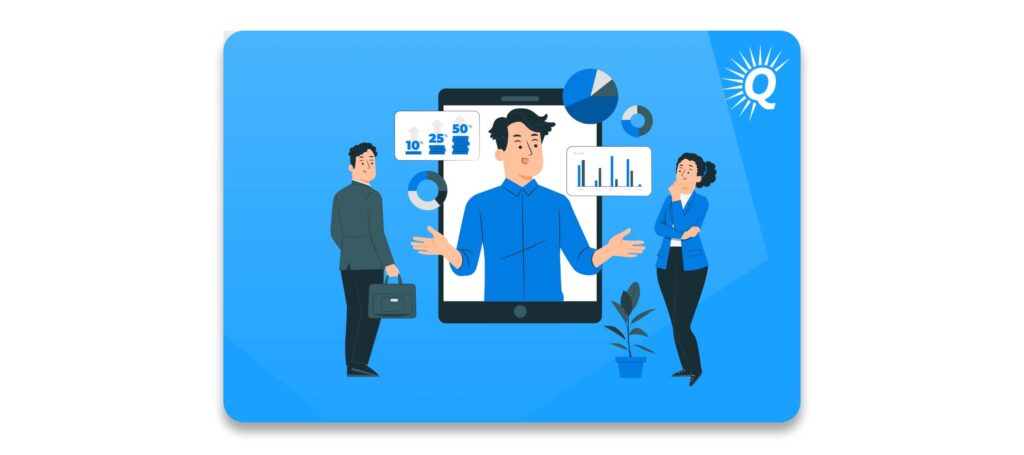

Brokers bring security to the Saas sales process
Just like you’ve spent time building customer trust and relationships with your SaaS customers, brokers have working relationships with a wide variety of business owners. They have a working knowledge of the strength of the current SaaS business market.
Because they’ve worked with buyers all the way through the sales process, they have a big picture view. This is incredibly valuable to you as a seller, especially if this is your first time going through the business sales process.
When you hire a business broker, you don’t run the risk of missing an important step, or making a common mistake when selling. Your broker is working as your guide the entire way, from valuation to transitioning your SaaS business to a new owner.
You gain access to a wider pool of potential buyers interested in your SaaS business
Connecting with the right buyer is an important step in selling your SaaS business. Experienced business brokers have access to a large pool of quality buyers who are looking for a SaaS business like yours.
Maybe they’ve networked with other business owners from previous deals. Or they might be part of a brokerage firm with a large list of potential buyers they communicate with regularly.
When multiple buyers are interested in your SaaS business, that competition can boost offer prices. That’s great news for you when you’re looking to make a profitable and successful exit!


Conclusion
As an entrepreneur thinking about selling your SaaS business, it’s important to define your “why” behind your desire to sell. The knowledge of exactly what you hope to achieve by selling your business can motivate you through the unique challenges you might face during the sales process.
Defining your business goals not only sets you up to be a better SaaS business owner in the present moment, it also positions you for a successful exit in the future.
If you’re interested in a free, no-obligation value of your SaaS business, reach out to us! We’d love to hear more about you and the dreams you have for your business!
Thinking of Selling Your Business?
Get a free, individually-tailored valuation and business-readiness assessment. Sell when you're ready. Not a minute before.





